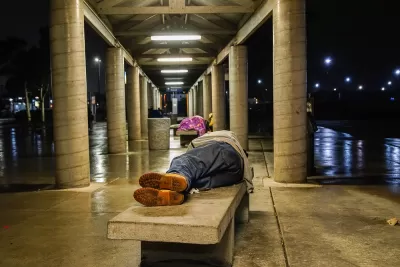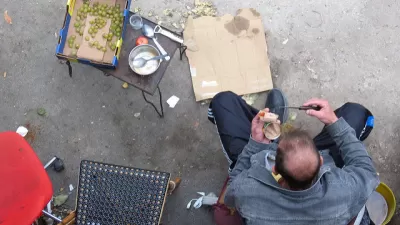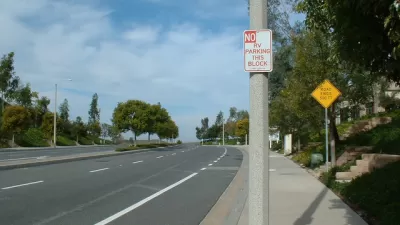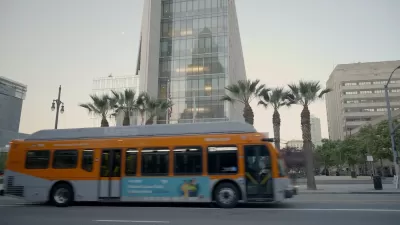The transit agency's year-long experiment with homeless services has placed 19 people in permanent housing and spurred hopes of expanding the program.

Last year, the L.A. County Metropolitan Transportation Authority launched two teams tasked with outreaching to homeless riders along the Red Line. First formed as a project of the county Department of Health Services, the teams—comprised of medical and mental health providers, substance abuse counselors, and formerly homeless advocates—have sought to "keep track of" homeless people and connect them with services and housing, Meghan McCarty Carino explains for KPCC.
The results so far? "The teams had interacted with about 1,500 individuals over the last 10 months — 19 were actually placed in permanent housing, while 445 more were connected with programs that work to provide temporary or permanent housing," Carino reports.
In hopes of expanding the pilot— which was initially supposed to cover the Gold and Green Lines as well—Metro has put in to receive funding from Measure H, the county sales tax passed last year to fund homeless services. The agency also participates in the Los Angeles Police Department's HOPE program, which partners police officers and homeless services workers.
L.A. Metro, which oversees a real-estate development program alongside its bus and rail operations, has recently turned its attention to homelessness in part as a response to surveys indicating that safety concerns are a major deterrent to transit ridership. As ridership rates continue to fall, the agency has nearly doubled the number of police and armed security guards on rail and buses partly to "mitigate the adverse impacts of homelessness" on transit, although research has suggested that homeless people are more likely to be victims than perpetrators of crime.
FULL STORY: 1 year in, here's how LA Metro's homeless program is doing

Alabama: Trump Terminates Settlements for Black Communities Harmed By Raw Sewage
Trump deemed the landmark civil rights agreement “illegal DEI and environmental justice policy.”

Study: Maui’s Plan to Convert Vacation Rentals to Long-Term Housing Could Cause Nearly $1 Billion Economic Loss
The plan would reduce visitor accommodation by 25% resulting in 1,900 jobs lost.

Planetizen Federal Action Tracker
A weekly monitor of how Trump’s orders and actions are impacting planners and planning in America.

Waymo Gets Permission to Map SF’s Market Street
If allowed to operate on the traffic-restricted street, Waymo’s autonomous taxis would have a leg up over ride-hailing competitors — and counter the city’s efforts to grow bike and pedestrian on the thoroughfare.

Parklet Symposium Highlights the Success of Shared Spaces
Parklets got a boost during the Covid-19 pandemic, when the concept was translated to outdoor dining programs that offered restaurants a lifeline during the shutdown.

Federal Homelessness Agency Places Entire Staff on Leave
The U.S. Interagency Council on Homelessness is the only federal agency dedicated to preventing and ending homelessness.
Urban Design for Planners 1: Software Tools
This six-course series explores essential urban design concepts using open source software and equips planners with the tools they need to participate fully in the urban design process.
Planning for Universal Design
Learn the tools for implementing Universal Design in planning regulations.
Caltrans
Smith Gee Studio
Institute for Housing and Urban Development Studies (IHS)
City of Grandview
Harvard GSD Executive Education
Toledo-Lucas County Plan Commissions
Salt Lake City
NYU Wagner Graduate School of Public Service





























